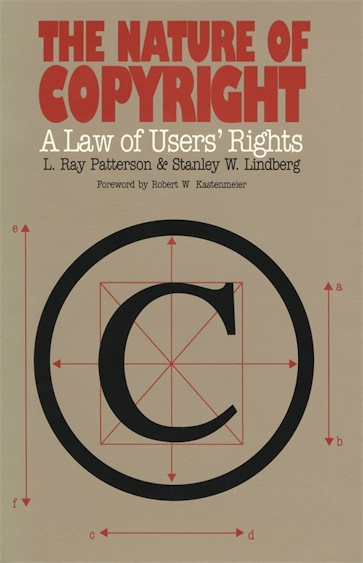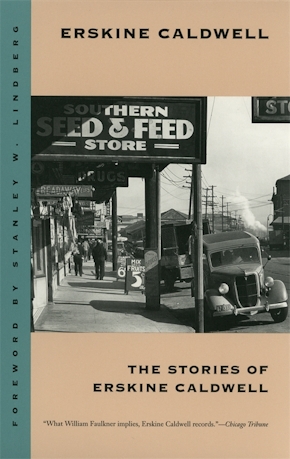The Nature of Copyright
A Law of Users' Rights
Title Details
Pages: 296
Trim size: 5.500in x 8.500in
Formats
Paperback
Pub Date: 11/01/1991
ISBN: 9-780-8203-1362-7
List Price: $34.95
Related Subjects
The Nature of Copyright
A Law of Users' Rights
Skip to
- Description
- Reviews
This forthright and provocative book offers a new perspective on copyright law and the legal rights of individuals to use copyrighted materials. Most Americans believe that the primary purpose of copyright is to protect authors against the theft of their property. They are wrong, say L. Ray Patterson and Stanley W. Lindberg. Guaranteeing certain rights to authors (and to the entrepreneurs who publish and market their creations) is only an incidental function of copyright; it exists ultimately for the public’s benefit. The constitutionally ordained purpose of copyright, the authors remind us, is to promote the public welfare by the advancement of knowledge. In The Nature of Copyright they present an extended analysis of the fair-use doctrine and articulate a new concept that they demonstrate is implicit in copyright law: the rule of personal use.
Viewing copyright in a historical context, Patterson and Lindberg show how its original purposes—to prevent both the monopoly of the book trade and the official censorship of writings—have been lost largely as a result of uninformed jurisprudence. Contributing to the problem have been special-interest groups that have circulated official-looking but misleading copyright “guidelines” for copyright users, librarians, and others. According to the authors, the claims in these intimidating guidelines, such as copying restrictions based on specific word counts, are not legally binding and indeed are often groundless. If the current trend to give publishers and other vested interests even wider protection under copyright continues, warn Patterson and Lindberg, knowledge could become a private commodity to which access is tightly controlled.
The authors also address the effect of recent court rulings in such cases as [J.D.] Salinger v. Random House, Inc., and New Era Pub. Int. v. Henry Holt & Co. (the L. Ron Hubbard biography case). Severely hampering the work of biogra
—Lydia Pallas Loren, Michigan Law Review

